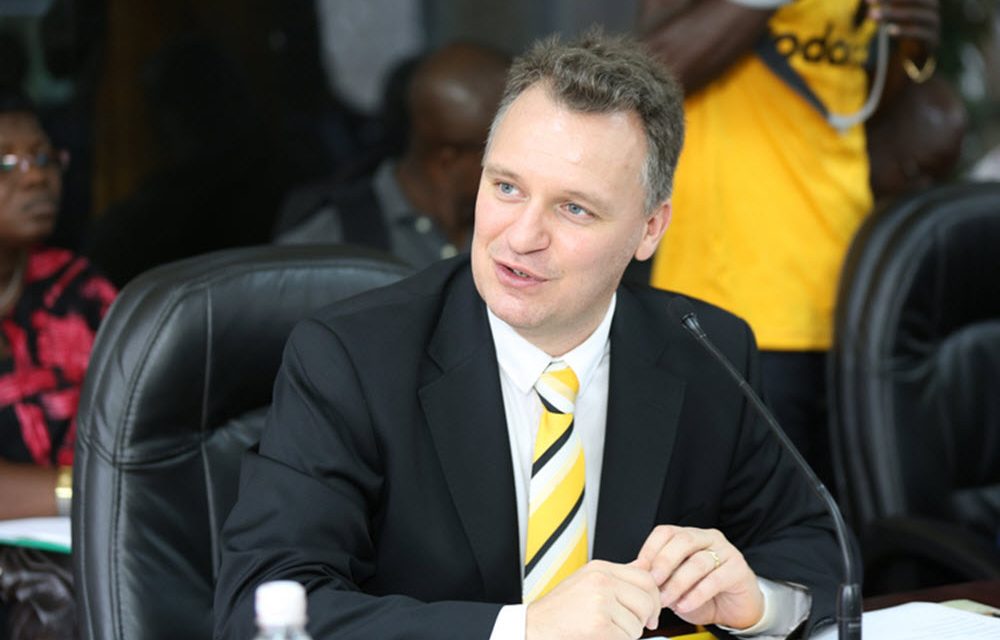Field Marshal Idi Amin Dad Oumee, Uganda’s third President. Finally forgotten pages about his positive side are emerging in scholarly works
The general narrative about Idi Amin’s government was that it was a state of blood. But a Professor, Derek K Peterson from Michigan University says it was not. Professor Peterson disagrees with authors like Henry Kyemba, who has a different narrative in his book; A state of blood: the inside story of Idi Amin.
In 1977 – Henry Kyemba, a former Uganda minister in Idi Amin’s government, authored the book giving a description of his years as a minister under Idi Amin.
Several other authors and newspapers nicknamed Amin “the butcher of Uganda”, “murderous erratic ruler” and one of the most brutal despots.
They have for over 50-years focused on his alleged atrocities and misrule.
Emerging ones are picking up some of the positive aspects of Uganda’s third President. One of the new generations of researchers is Derek R Peterson, a Professor of History and African Studies at the University of Michigan. He on 31st August published a researched article themed “Government work in Idi Amin’s Uganda”.
The article is one of the few focusing on the enduring the professionalism of experts, government officials and others working in the public trust. Professor Derek K Peterson like recent authors shows that Idi Amin’s regime was, in many places, a state that worked.
He details how President Idi Amin managed to run the government largely supported by “commoners” and a professional civil service during his eight-year rule. Field Marshal, Idi Amin Dada was toppled out of power over 42 years ago having ruled Uganda from 1971 to 1979.
“I share with these scholars an admiration for the professionals – like Henry Kyemba – who, at a time of great danger, worked for the common good. At the same time, I think it important to acknowledge that professionals’ authority was dramatically diminished,” said Peterson in the article published by Cambridge University Press.
Derek K Peterson in the article observes that from 1973 onward, price inflation crippled the Ugandan economy and that the infrastructures that enabled and facilitated civic life were radically constrained.
“Everywhere there were shortfalls that compromised government bureaucracy: shortages of paper made it difficult to collect taxes or keep records; shortages of petroleum made it impossible to inspect schools or conduct land surveys; shortages of cement and corrugated iron made it hard to construct new buildings. These material and infrastructural austerities made it difficult for professionals to exercise supervisory, administrative power.”
How Government Worked Under Idi Amin
Peterson observes that the diminution of bureaucrats’ capacity opened up spaces where people outside government could shape public life.
“That was the consequence of the austerities of the 1970s: a rapid de-professionalization of civil administration,” he observes.
Derek K Peterson through the article demonstrates how “commoner” whom he describes as people who were not invested with the titles, credentials or expertise that professionals possessed took on administration roles at a time when professionals could not work amidst a shortage of essentials like paper among others.
“Commoners found themselves indiscriminately dragooned into service, as the urgent demands of public life drew an unlikely assortment of unqualified people to lay down their lives. That is how people came to see themselves as proprietors of public institutions,” reads the article
Professor Derek K Peterson, also the co-author of The Unseen Archive of Idi Amin: photographs from the Uganda Broadcasting Corporation says the rapid rate of inflation during Amin’s reign made wage employment unprofitable.
Austerity and government work
“It took hard work. As supply chains withered, shops closed and the basic accoutrements of life grew hard to find, local government officers were increasingly encumbered with the obligation to make up shortfalls. Over the course of the 1970s, the government became a the do-it-yourself operation, as officials and citizens struggled to meet the responsibilities imposed upon them.”
According to Professor Derek Peterson, infrastructure projects were similarly financed and built through commoners ‘energies and talents.
“Self-help projects could be remarkably ambitious. In the south, local people completed work on fifty-five roads covering 371 miles over the space of one year. The standard was not particularly high. Volunteer work crews lacked tools. There were no lorries to carry the crushed stone. There were no pipes for culverts, and drainage must have been a problem. Even so, local officials could rightly boast that local people had ‘[scored] spectacular achievements’ through their communal labour.”
Professor Derek K Peterson concludes that “I have argued here that the Amin regime was not, in fact, a state of blood. It was self-sacrifice that made the Amin regime work. The essential things that made the bureaucracy function were in short supply; the infrastructure of the economy was in disorder.”
-URN





